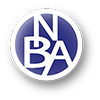togilby
Forum Replies Created
-
AuthorPosts
-
togilby
ParticipantThank you, Lindy, this is very helpful as the book contains many of these tables with example computations in the first row. I will happily employ your practical method of listing the 1st row entries before displaying the complete table. And I appreciate your cross-references to specific Formats guidelines.
trumbull
togilby
Participantall cleared up, thank you!
togilby
ParticipantThank you, your approach to answer blanks makes life so much simpler *and makes sense to boot!
I am, however, not catching the drift of your final paragraph. Would you expand/clarify please?
Thanks!
togilby
ParticipantThank you, that makes perfect sense.
togilby
ParticipantHere's an example of a graph that has both NC and UEB labels
Attachments:
You must be logged in to view attached files.togilby
ParticipantAhhh, it *does make sense when seen through your wise and knowledgeable lens! I was hung up on the upper-cell numbers as UEB symbols but in this case they are only upper-cell numbers, not symbols from another code. Brilliant!
Now I'm struggling with the key listings. Must I treat the upper-cell numbers as Nemeth Code when listing the keyed labels? Some labels are words, some are equations or other math content, some are a mix of both. There will be much switching in and out of NC and use of the one-word switch. Obviously the symbol will read the same whether in UEB or NC but is it wrong to have a mix?
Thank you for helping me over this hurdle!
-
This reply was modified 6 years, 8 months ago by
togilby.
togilby
ParticipantHi Kyle,
Can you shed some light on the rational of Nemeth content continuing across braille and/or print page turns?
In both cases, the page number is in UEB. Additionally, we always use a running head which is, of course, in UEB. It's not that I'm complaining! -- it certainly frees up some valuable real estate; for instance when choices A, B, C, and D are each a full page graph -- but I am curious.
thanks!
trumbull
togilby
ParticipantThanks, Kyle,
Unable to find an example of the left superscript minus sign with an integer, I wanted to be certain I was going to get it right! Now I know for sure 🙂
Trumbull
togilby
Participantahhh, it's all in the wording! "at the beginning" but only at the beginning, i get it!
now my only challenge is how to make it fit 😉
thanks, Kyle
togilby
ParticipantKyle, I'm seeking clarification about when the body of a table is considered technical. Until today, I've been transcribing the body of a table in the Nemeth Code if any single entry is of a technical nature. Admittedly, that doesn't happen often, but there are certainly occasions when only a couple of entries contain decimal points, for instance, or there is one sample equation in a fill-in column.
I've just read your post regarding #2 above ( A table that has one entry that must be in Nemeth Code is not required to have all its rows in Nemeth Code.) and it's made me wonder if I've been sweating thru the process unnecessarily. Is there literally a dividing line between your "one entry" and "table entries" as stated in #6 p.7 of the Guidance? Is it a braillist's prerogative to use Nemeth switches within the body of a table?
The Guidance is pretty vague with its single paragraph regarding tables. Your guidance is always appreciated!
Trumbull
togilby
ParticipantHi Kyle,
I notice that in your answer to two-three-six's #1 above, you did not reference the change to the rule about units of measure which, in an 8/3 post, you refer to as "the as-yet-unpublished updates to the our Guidance (which Dorothy Worthington talked about in her recent NBA webinar, “Update to the Guidance for Transcription Using Nemeth Code within UEB Contexts. What Has Changed?“)."
I realize that the change would not apply to this particular example, but it made me wonder … has the update been published? if not, when, and is it wrong to be applying it in advance? I have been following the updated rule since listening to that webinar; premature, perhaps, but it since it so neatly clears up the question of what and what not to include in the switches, I couldn't resist 😉
togilby
ParticipantThanks Kyle! I'm much happier with this approach than the alternate 🙂
Trumbull
togilby
Participantthank you! I was looking in section 21 Alphabetic References ;(
togilby
ParticipantThank you Cindi,
I am happy to know that the numeric passage indicator is a tool, not a rule,
haha, UEB poetry!
thanks for your explanation,
Trumbull
togilby
ParticipantThanks for researching, Rebecca.
I'm asking about both situations but specifically about the reference to shading and if perhaps I've missed a guideline about not having to include "shading" in either scenario, perhaps because it's such a common reference? I understand that area textures must be included on the SS page, just thought shading might be an exception based on the referenced statement from Example 31 and the fact that, in the example, there is a very specific reference to a shaded oval. Does this clarify my inquiry?
Thanks again!
-
This reply was modified 6 years, 8 months ago by
-
AuthorPosts
